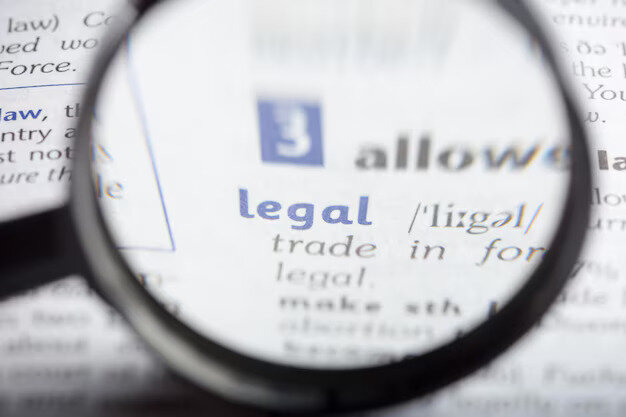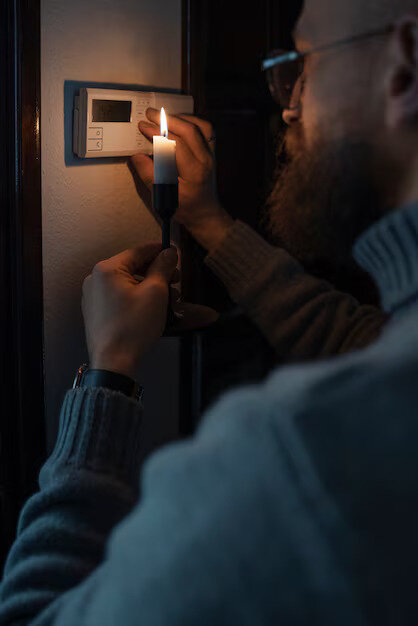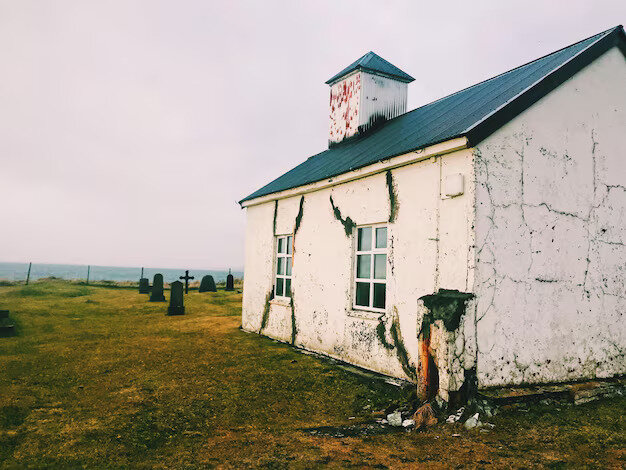When a house in Texas is deemed uninhabitable, it means it no longer meets the basic standards set by local building codes or health and safety regulations, making it unsafe for occupancy. This determination can be due to various factors, including significant structural damage, hazardous materials, lack of essential services like water or electricity, or severe pest infestations.
Such a designation can have several implications for homeowners, landlords, and tenants. Homeowners may face legal restrictions against selling or renting the condemned property without making necessary repairs. Landlords are typically required to ensure that their rental properties remain habitable, and failure to do so can lead to legal actions from tenants, including withholding rent or breaking leases without penalty.
For tenants, living in an uninhabitable home can pose serious health risks, and they may have the right to seek alternative accommodations at the landlord’s expense until repairs are made. Overall, the process and consequences of a house being declared uninhabitable highlight the importance of maintaining properties to meet health and safety standards and the legal obligations of property owners to ensure a safe living environment.
Legal Definition and Criteria
In Texas, the definition of what constitutes an uninhabitable house is largely guided by the Texas Health and Safety Code. According to state regulations, a dwelling must meet certain minimum standards of habitability to be considered suitable for living. These standards are designed to ensure that all residential properties provide a safe and healthy environment for occupants.

State Regulations: Texas Health and Safety Code
The Texas Health and Safety Code stipulates that habitable homes must provide basic structural integrity, adequate sanitation, and essential utilities. The code mandates that residences be maintained in a condition that is weatherproofed, structurally sound, and sanitary. Homes must also have a reliable connection to necessary utilities such as water, electricity, and sewage systems.
Minimum Standards for Habitation
- Structural components like floors, walls, and ceilings must be intact and in good repair.
- The property must have adequate heating in the winter and cooling capabilities (where necessary), depending on regional climate norms.
- There must be access to clean and safe drinking water.
- Adequate sewage disposal systems must be in place and operational.
- The property must be free from significant health hazards like toxic mold, rampant pest infestations, and exposed electrical wiring.
Common Criteria for Uninhabitability
A house may be deemed uninhabitable under Texas law if it fails to meet the aforementioned standards due to issues such as:
- Severe Structural Damage: This includes critical damage to the foundation, leaky roof collapses, or compromised walls that directly impact the safety and security of the occupants.
- Lack of Essential Utilities: Essential services such as hot water, electricity, and sewage must be consistently available. Disconnection of these services, whether due to structural issues or utility company failures, can render a home uninhabitable.
- Presence of Hazardous Materials: The existence of lead paint, asbestos, or black mold in harmful quantities can make a dwelling unsafe. These materials pose serious health risks and must be remediated according to state and federal guidelines.
- Extreme Pest Infestations: Infestations by pests such as rodents, cockroaches, or termites that are severe enough to jeopardize the health or safety of residents can also define a house as uninhabitable.
Process of Declaration
Inspection and Assessment
The process of declaring a house uninhabitable in Texas begins with a thorough inspection and assessment, typically conducted by local building inspectors or health department officials. These professionals are responsible for code enforcement and are trained to identify violations of the Texas Health and Safety Code.
Local building inspectors and health departments play a crucial role in maintaining public safety by ensuring residential properties meet legal habitability standards. Inspectors assess various aspects of the property, including structural integrity, utility services, and the presence of hazardous materials.
During the inspection, officials document all deficiencies and code violations that could potentially render the property uninhabitable. This documentation is crucial as it forms the basis for any legal actions or orders for repairs.
Official Declaration
Following the inspection, if the property is found to violate habitability standards severely, the formal process of declaring it uninhabitable is initiated.
This process involves a detailed review of the inspection report by a senior official or a regulatory body, which will confirm the findings and make a formal declaration based on the documented evidence.
Once a house is officially declared uninhabitable, the property owner is notified of the decision. This notification typically includes details of the violations, necessary corrective actions, and the timeframe within which these actions must be completed to restore the property’s warranty of habitability.
This formal declaration process ensures that property owners are given the opportunity to rectify the issues, and it protects the rights of tenants by preventing them from living in unsafe conditions.
Immediate Consequences
Evacuation and Safety Measures
Once a condemned house is declared, immediate steps are taken to ensure the safety of its occupants. Residents are typically required to leave the property quickly to avoid health risks or physical harm. This evacuation is enforced by local authorities to ensure that no one is exposed to unsafe living conditions.
Local health or housing departments may provide guidelines on how to vacate safely and may coordinate with social services to assist residents in finding temporary housing if necessary

Utility Shut Off
To prevent further risks and damage, utilities might be disconnected:
- Disconnection of Water, Gas, and Electricity: This measure is taken to ensure safety, especially if the structural integrity of the property is compromised or if there is a fire hazard, flood, or other risks caused by faulty electrical systems or gas leaks.
- Preventing Further Damage and Hazards: Shutting off utilities helps mitigate additional risks such as water damage from leaks, electrical fires, or gas explosions, particularly in situations where the property’s infrastructure cannot safely support these services.
Owner’s Responsibilities and Options
Repair and Remediation
Once a house is labeled with a condemned status, the property owner is required to undertake necessary repairs to bring the property back up to code. This involves addressing all the issues cited in the official declaration, such as fixing structural damages, removing hazardous materials, and restoring essential utilities.
Owners are generally required to hire licensed professionals to ensure that all repairs meet local building codes and safety standards. This can include contractors, electricians, plumbers, and other specialists depending on the nature of the deficiencies.
Financial Implications
The cost of repairs can be substantial, depending on the extent of the damage. Property owners might be eligible for financial assistance through local government programs, housing aid, or disaster relief funds, especially if the damage is due to a natural disaster. The declaration of a property as uninhabitable can also adversely affect its market value.
Legal Obligations
After repairs are made, properties often undergo another inspection to ensure compliance with habitation standards. Failure to meet these standards can lead to additional legal actions.
If the property owner fails to make the required repairs or does not comply with the timelines set by the regulatory authorities, they may face fines, penalties, or even legal proceedings.
Tenant Rights and Protections
Lease Termination
Tenants can usually terminate their leases without penalty if their rental unit is deemed uninhabitable. This right is designed to prevent tenants from being tied to a living situation that poses health or safety risks.
Tenants are also entitled to a full return of their security deposits, provided they have not caused any damage to the property that exceeds normal wear and tear. The process typically involves notifying the landlord in writing and providing a forwarding address for the return of the deposit.

Temporary Housing
Displacement from an uninhabitable property often necessitates finding temporary housing. Various local and state assistance programs may be available to help displaced tenants. These programs can include emergency housing aid, financial assistance, and resources for finding temporary or long-term housing.
In some cases, landlords might be required to provide or assist in finding alternative accommodations for their tenants, especially if the uninhabitability is due to neglect or failure to perform necessary maintenance.
These protections ensure that tenants are not unduly burdened or exposed to unsafe living conditions due to circumstances beyond their control, maintaining a balance between landlord responsibilities and tenant rights.
Government and Community Assistance
Local Government Support
Many local government agencies offer housing assistance programs designed to help displaced residents find temporary or permanent housing. These programs may include subsidized housing, rental assistance, or vouchers.
Property owners may have access to grants and loans aimed at facilitating the necessary repairs to restore properties to habitable conditions. These financial aids are typically provided to encourage compliance with local housing codes and to maintain community standards.
Non-Profit and Community Organizations
Non-profit organizations often provide emergency housing options and financial aid to those affected by uninhabitable living conditions. This can include shelters, temporary housing, and direct financial assistance to cover immediate needs such as food and healthcare.
Many communities have established networks that offer various forms of support to individuals and families facing housing crises. These networks often consist of volunteers and local agencies that work together to provide resources like clothing, food pantries, and counseling services.
These layers of support from both government entities and community organizations ensure that individuals and families have the necessary resources to manage the challenges posed by uninhabitable housing conditions.
Legal Recourse and Disputes
Disputing an Uninhabitable Declaration
Property owners have the right to challenge a declaration that their property is uninhabitable if they believe it has been wrongly assessed. This process involves submitting evidence, such as repair records or new inspections, to a local housing authority or building inspection department to prove compliance with housing codes.
Home owners may also seek legal representation to navigate the appeal process. Legal professionals can provide guidance on collecting adequate evidence and represent the owner in any court proceedings if the dispute escalates to litigation.
Resolving Disputes with Tenants
Disputes between landlords and tenants regarding uninhabitability can arise and are typically handled through several channels. Mediation is often encouraged as a first step to resolve disputes amicably. This involves a neutral third party who helps both the tenant and the landlord reach a mutually acceptable solution. If mediation fails, legal action might be necessary, where a court will determine the outcome based on the evidence provided.
Many local governments and non-profit organizations offer tenant-landlord dispute resolution services. These services aim to provide both parties with legal information, mediation services, and, if necessary, guidance on proceeding with formal legal actions.
These processes ensure that both property owners and tenants have avenues to pursue justice and protect their rights under the law, fostering a balanced approach.
Conclusion
When a house is deemed uninhabitable in Texas, it triggers a series of significant implications for property owners and tenants alike. From the necessity of immediate evacuation and resident safety, to the ensuing legal and financial responsibilities required to remediate the property, the impact is substantial. Timely action and strict compliance with repair and remediation directives are crucial to avoid further legal complications and to ensure that the property can once again be a safe, habitable space.If you are facing challenges with a property that might be considered uninhabitable, and hoping to sell it quickly without the need for repairs, A List Properties can help. We buy houses for cash, providing a fast and hassle-free solution to sell your property as-is. Contact us today to learn how you can transition from an uninhabitable property to a fresh start with ease!

Zach Shelley
Zach Shelley is a seasoned real estate investor with a diverse network spanning across the nation. As the founder of his own real estate venture, Zach is committed to offering innovative solutions to homeowners facing various real estate challenges.. Through his dedication and strategic approach, Zach continues to make a significant impact in the real estate industry, providing homeowners with alternative pathways to navigate their property transactions.



